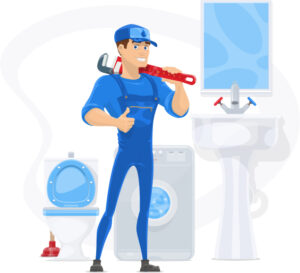Things You Need to Know When Hiring a Plumber
First impressions are critical when choosing a plumber. If the plumber arrives in a beat-up pickup truck and drips sewage from their last job, that could mean a number of things. It could also mean that they skimped on insurance, education, and licensing. Besides, poor quality work could be a signal that you shouldn’t hire a plumber with low qualifications. Ask to see a plumber’s license, insurance, and bonding contract.

You can also ask for references from your plumber if he’s willing to work with you. It’s important to have multiple references from different plumbers, as you never know when you might need one yourself. If you like a particular plumber, you can also leave a positive review online or become a reference for him or her. These reviews can help other people find a good plumber. You can also leave a tip. This way, you can reward a good plumber and help others in need.
Plumbing jobs can be complex and expensive, so choosing a plumber carefully is crucial. Even if you only need a few plumbing repairs, you should still choose a reputable company that can provide affordable service. Consider establishing a long-term relationship with a plumber and make sure you can reach him or her during normal business hours. It’s also easier to contact a plumber in an emergency situation if you’re a regular customer.
A plumber’s daily duties will vary, depending on their specialty. For instance, a residential plumber may be required to unclog a drain or repair a leaking pipe. While a commercial plumber may be hired to install a large-scale plumbing system. So, what skills should a plumber have? The job requirements can be varied, but there are some general requirements that all plumbers must possess. If you have these qualities, you should be able to handle a variety of jobs.
A license is essential for a plumber to work independently, and most states require two to five years of practical experience. You can find detailed information on licensing requirements by state at the United Association of Plumbing and Heating Contractors. Plumbing jobs are also lucrative, as the average people are expected to work well into their sixties. As an added benefit, plumbing jobs have low-stress levels and offer mobility and flexibility upward.
A plumber’s job includes a wide variety of projects. Some plumbers specialize in installing new plumbing systems, troubleshooting problems, and fixing worn-out parts. Plumbing jobs can range in size, from large water lines for a building to fixtures for refrigerators and toilets. The tasks vary in complexity, and plumbers often need to drill holes in walls and hang steel supports from ceiling joints. Some plumbers are also capable of soldering copper pipes to fit in their work.
Another important trait to look for in a plumber is transparency. A trustworthy plumber should always be upfront about pricing. You do not want to be surprised by an unexpected bill at the end of the job. The same goes for the price of a service. Always be wary of plumbers who are secretive about their prices and offer a lower prices than their competitors. You can find a trustworthy plumber if you follow these tips. The more you know, the better your chances are of hiring a trustworthy professional.
A plumber should have the proper licensing and bonding. A reputable plumber will be able to show you their credentials, but not all of them will. Make sure they are current, since some plumbers may have expired working licenses. Additionally, check their customer reviews to determine the quality of their work. You can learn from the experience of other customers who have had plumbing work done for them. The next time you need a plumber, you can rest assured that you have hired the best.
Finding a reputable plumber for any type of plumbing work is essential. Ask friends and neighbors who have used a plumber. It is important to find a plumber who is trustworthy and can provide great service. It is important to check the credentials of a plumber before hiring them, as the quality of their work is a key deciding factor. You should also check if they provide emergency service since plumbing problems can happen anytime. If they don’t offer this service, you should choose another plumber.
Apprenticeship programs are another way to become a plumber. Apprenticeships last two to five years and include both classroom and hands-on workshops with experienced plumbers. However, most plumbing apprentices do work under the supervision of an experienced plumber. After completing the apprenticeship, you’ll be eligible to take additional licenses and certifications. The training program can take three to seven years, and your goals will determine how long the training will take. For those with a high school diploma, the process will take less time.
